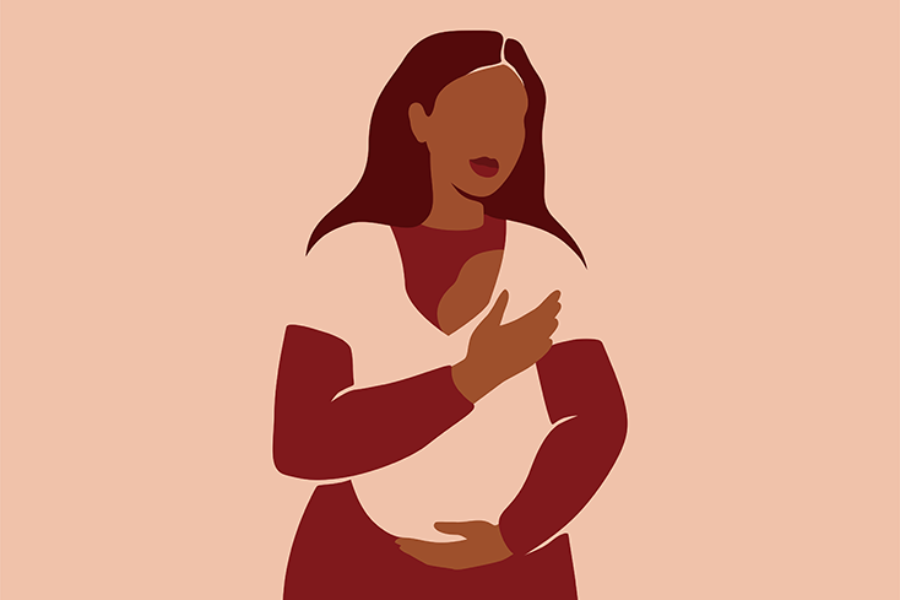I always pause when someone asks the question: “Didn’t you always want to be a mother?”
No. No, I did not.
I have always liked children. My education and career have centered on children’s welfare and development. Never did I fear that children would “hold me back,” personally or professionally. I even enjoyed spending spare moments with kids.
My hesitance about parenthood stemmed from my own childhood trauma and the state of my mental health. Specifically, I had two fears: That my mental illness would make me a terrible parent and that the genetic odds of my kids grappling with mental health conditions seemed too high.
I Believed I Couldn’t Be A Good Parent
I live with bipolar disorder. Caring for myself — which includes regular therapy, medication, making space for grounding and re-centering myself — requires significant energy, intention and time. How could I expect to give a child or children the energy and attention they deserved? Even when healthy, I was plagued by thoughts of dread. When I was not healthy, my thoughts were downright terrifying.
In adolescence and early adulthood, my manic episodes shed light on what I believed to be personal shortcomings that would prevent me from becoming a good parent. While manic and hypomanic (and amid delusions and feelings of grandiosity) I was not usually reflective, but in the moments when I was, I felt regret and shame over my self-centeredness. In those moments, I doubted I would ever be a suitable parent. Would I put them in danger, as I often put myself? Would my erratic behavior damage them?
When I had depressive episodes, my thoughts about parenthood were filled with dread and gloom. What if I died by suicide and abandoned them? Even if I was physically present, would I be able to care for them? Getting out of bed, folding laundry, feeding myself and bathing felt unmanageable when I was depressed. If these acts were too much for me, how would I possibly meet the needs of a child? And how could I provide enriching experiences and joy to a home?
Underlying these thoughts was deep self-doubt and the sense that I somehow didn’t deserve children.
Changing My Mindset Required Work
I have two beautiful, healthy children. What changed? In some ways, the shift felt abrupt. One day, I woke up and just wanted children, though I know that the journey required much more work and self-reflection than that.
In the fall of 2008, I experienced a hypomanic, borderline manic episode. In my second year of graduate school, I found myself overcommitted and stretched thin: Too many courses, a 50-mile commute, training for a marathon, taking swim lessons, teaching, performing research and more. Autumn is always a precarious time for me.
The rustle of leaves, vibrant colors, excitement about a new school year, cool wind whooshing in my hair — these typically beloved and highly-anticipated seasonal changes lead to a loss of grounding for me. And in the past, I would not even realize when I started to escalate toward mania.
I distinctly remember the day my perspective began to change. It was the first cool day of the season, but I was still wearing shorts. As I walked across campus, mesmerized by the movement made by the wind on the ruffles on my shirt, a thought snapped into focus, “Oh, this could become mania. This could become very dangerous. I am already pushing myself too much.”
I walked right into the campus counseling center. There, I started therapy, in what was the longest consecutive stretch of treatment I’d ever had. During this time, I received psychodynamic therapy to work through traumatic events from my youth and uncover how they fueled my fears about parenting. As I progressed, my self-doubt decreased and my capacity to imagine myself as a parent grew.
Being The Best Parent I Can Be
I love my role as a parent, but parenting still terrifies me. Being a parent with a mental health condition terrifies me. Some of my earlier fears weren’t unfounded. A parent’s mental health condition presents the possibility for negative impacts on children. However, harm is not inevitable. In fact, I believe my history has made me a better parent.
I practice vigilance when it comes to my symptoms, and I never take my health for granted. Diligently, I put routines in place that keep me healthy, and I model these behaviors for my children. For example, I have established evening routines that create conditions for healing and stabilizing sleep. Our whole family has now adopted them, too.
Chances are, you haven’t heard other parents or caregivers talk about their struggles with mental health conditions. You may have heard about their children’s challenges with mental health, but not their own. If you are a parent or guardian, or considering parenthood or guardianship, and have a mental health condition, you are not alone. If 1 in 5 adults grapples with a mental health condition and roughly 40% of households have children under the age of 18, the math suggests that there are many of us.
Parents and caregivers living with mental health conditions should be empowered to come out of the shadows. Doing so creates conditions for a supportive peer community and for parents to get the care we need to be the healthiest caregivers we can be.
Nicole Beeman-Cadwallader works with a group of students with lived experience with mental illness as a part of a 4.0 Schools fellowship. Together, they are co-designing a training program for peer-to-peer mental health recovery supporters, specifically addressing LGBTQ+ individuals and students of color. She can be reached at nbeeman22@gmail.com.




